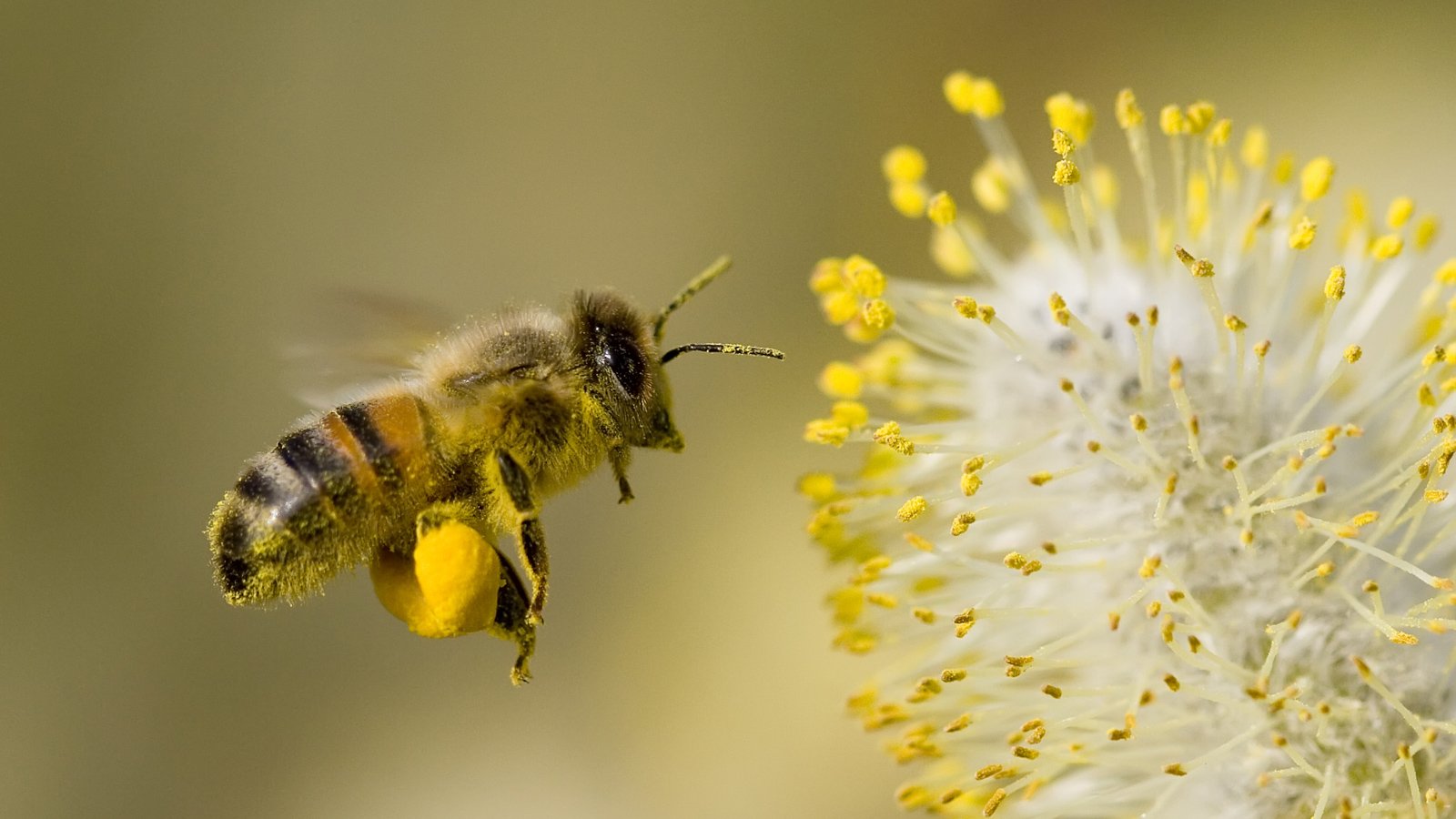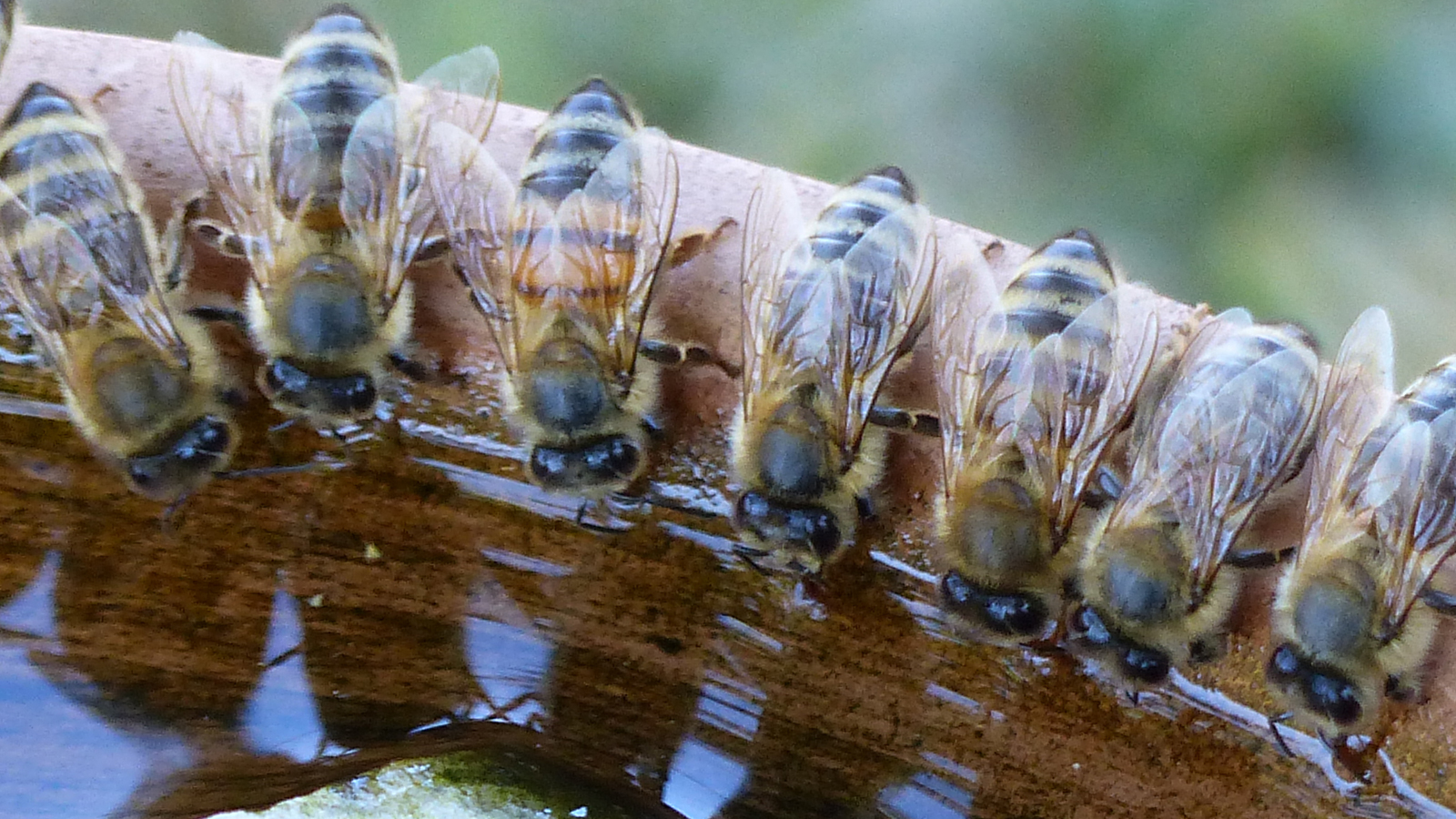Have you ever heard of the term bee washing? Companies and organizations claim that their products or services are bee-friendly or help protect the creatures. In many cases, this is true. But sometimes the claims are greatly exaggerated or not true at all.
Bee washing is thus a form of greenwashing. In this way, companies falsely present themselves as environmentally friendly in order to improve their image. This is not always done consciously and sometimes occurs due to lack of knowledge. In this article, we list a number of examples of bee washing. We also explain how we can help the bee.
Help bees?
The bee is having a tough time. Bees are indispensable to our ecosystems and food production. That's because the animal plays a vital role in pollinating crops and wild plants. When the availability of plants declines, it can lead to food shortages and changes in the entire ecosystem.
For this reason, many people care about bees. And companies know this too. That's why they skillfully capitalize on this sentiment. But the bee is not always helped as much as people think.
Read also

Life span of bees halved in 50 years
Bee washing in practice
We list some examples of bee washing:
'Bee-friendly' products and plants
For a bee-friendly impression, products are sometimes packaged with pictures of bees and flowers on them. But sometimes the product contains ingredients or substances that are harmful to bees. Or they are produced in a way that is harmful to them. These products are then falsely labeled "bee-friendly.
Colorful flower borders shoot out of the ground. You may see them next to fields, a beautiful sight. And while a roadside full of flowers is better than a roadside without flowers, it can be harmful if those roadsides are infested with agricultural poisons. And did you know that some plants and bulbs from garden centers also contain harmful toxins for bees? Thus, the plants overshoot their mark and can even harm the bee. Fortunately, many alternatives can be found online or at local growers with bee-friendly plants that do not contain harmful toxins.
Flower Mixtures
Bee-friendly seed mixtures are wildly popular. More and more municipalities and counties are seeding roadsides with them. Flower mixtures are widely sold or even handed out in promotional campaigns. But what you may not know is that these flower seeds are not always local. By doing so, you are putting non-native flowers in your garden, which unfortunately do not benefit our bees. And that while the native bee is picky and specifically looking for native plants. While you enjoy beautiful, colorful flowers, the bee flies uselessly around flowers that sometimes don't even contain nectar or pollen.
Bee hotels
Insect hotels and bee hotels are a cleverly conceived concept, but there can be drawbacks for the bee. Most bees, as many as 80% prefer to nest in the ground. A bee hotel only attracts mason bees. The quality of the hotel is also important. If the holes are not smooth inside, bees can damage their wings. Sometimes the holes are too large or shallow. On top of that, most wild bees are solitary: they don't want to stay too close together. Moist bee hotels can be an ideal breeding ground for fungi and parasites, depending on the material they are made of and the location where the hotel hangs.
Bee hives
Companies, such as Milgro support the bee by sponsoring a hive. Hives house honey bees. As beekeeping has become increasingly popular, honey bees have in some cases become competitors to native wild bees.
Honey bees fly as far as three kilometers and eat nectar and pollen. Wild bees often fly only about 150 meters far. So the impact of bee colonies in hives on the environment can be significant. It is therefore important where and how the hives are placed. Our beekeeper strongly considers wild bees. She also deploys biodynamic treatment of the bees: because the hive is equipped with special equipment, she knows exactly when to intervene and especially when not to intervene.
In addition, it is worth noting that honey bees are also needed as pollinators. The National Bee Strategy assumes an increase in all pollinators through growth in numbers, growth in species, growth in food crops and better distribution of bees nationwide.
Recognizing bee washing
Many companies think they are doing a good job of protecting bees. Proper knowledge about bees is therefore crucial, even within companies. By gaining knowledge yourself, you can set the right example. That way we can eradicate bee washing together.
How can we do help the bees?
So how do we actually contribute to the well-being of bees? We need to take concrete actions that have a positive impact on the habitat, food supply and protection of bees. But very often it is also a matter of not doing something.
- Provide nesting opportunities for bees in the garden by not neatly tidying up and winterizing everything. Leave downed stems, cluttered corners with leaves and dead branches.
- Are "weeds" popping up in your garden? These are often precisely native plants that attract local wild bees. So leave them in place.
- Mow the grass less frequently and in stages. This way the entire food supply does not disappear at once.
There is also a big role for businesses and governments in protecting bees. The Netherlands consists largely of agricultural land. Measures must be taken there to help bees. Consider:
- Using less poison.
- Maintain a higher water table.
- Maintain more natural elements, such as hedges and rows of trees.
Milgro and the bee
Milgro is inseparable from the bee. The little animal is included in our logo. We sponsor hives from Liquid Nature. This organization places hives in countries where economic growth and protection of biodiversity is needed. The hives are strategically placed so that the bee populations do not compete with local wild bees. Thus we very consciously protect various bee species.
Stay informed
Stay up to date on all new developments? Follow us on LinkedIn or Instagram. Or subscribe to the newsletter. Are you curious about what Milgro can do for your operations and waste process? Contact us.










